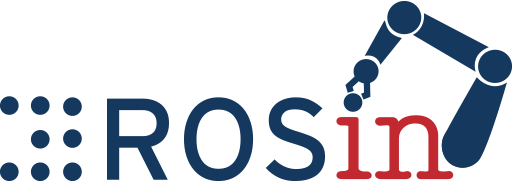eprosima Fast DDS (formerly Fast RTPS) is a C++ implementation of the DDS (Data Distribution Service) standard of the OMG (Object Management Group). eProsima Fast DDS implements the RTPS (Real Time Publish Subscribe) protocol, which provides publisher-subscriber communications over unreliable transports such as UDP, as defined and maintained by the Object Management Group (OMG) consortium. RTPS is also the wire interoperability protocol defined for the Data Distribution Service (DDS) standard. eProsima Fast DDS expose an API to access directly the RTPS protocol, giving the user full access to the protocol internals.
Some of the main features of this library are:
- Configurable best-effort and reliable publish-subscribe communication policies for real-time applications.
- Plug and play connectivity so that any new applications are automatically discovered by any other members of the network.
- Modularity and scalability to allow continuous growth with complex and simple devices in the network.
- Configurable network behavior and interchangeable transport layer: Choose the best protocol and system input/output channel combination for each deployment.
- Two API Layers: a high-level Publisher-Subscriber one focused on usability (DDS) and a lower-level Writer-Reader one that provides finer access to the inner workings of the RTPS protocol.
eProsima Fast DDS has been adopted by multiple organizations in many sectors including these important cases:
- Robotics: ROS (Robotic Operating System) as their default middleware for ROS2.
- EU R&D: FIWARE Incubated GE.
This project is part of FIWARE. For more information check the FIWARE Catalogue entry for Robotics.
Write to evaluation.support@eprosima.com or mention @EProsima on Twitter. We are curious to get to know your use case!
You can get either a binary distribution of eprosima Fast DDS or compile the library yourself from source.
The latest, up to date binary release of eprosima Fast DDS can be obtained from the company website.
On Linux, you can install these libraries using the package manager of your Linux distribution. For example, on Ubuntu you can install them by using its package manager with the next command.
sudo apt install libasio-dev libtinyxml2-devOn Windows, you can install these libraries using Chocolatey. First, download the following chocolatey packages from this ROS2 Github repository.
- asio.1.12.1.nupkg
- tinyxml2.6.0.0.nupkg
Once these packages are downloaded, open an administrative shell and execute the following command:
choco install -y -s <PATH\TO\DOWNLOADS\> asio tinyxml2Please replace <PATH\TO\DOWNLOADS> with the folder you downloaded the packages to.
colcon is a command line tool to build sets of software packages. This section explains to use it to compile easily Fast-RTPS and its dependencies. First install ROS2 development tools (colcon and vcstool):
pip install -U colcon-common-extensions vcstoolDownload the repos file that will be used to download Fast RTPS and its dependencies:
$ mkdir fastdds_ws
$ cd fastdds_ws
$ wget https://raw.githubusercontent.com/eProsima/Fast-DDS/master/fastrtps.repos
$ mkdir src
$ vcs import src < fastrtps.reposFinally, use colcon to compile all software:
$ colcon buildBefore compiling manually Fast DDS you need to clone the following dependencies and compile them using CMake.
-
$ git clone https://github.com/eProsima/Fast-CDR.git $ mkdir Fast-CDR/build && cd Fast-CDR/build $ cmake .. $ cmake --build . --target install
-
$ git clone https://github.com/eProsima/foonathan_memory_vendor.git $ cd foonathan_memory_vendor $ mkdir build && cd build $ cmake .. $ cmake --build . --target install
Once all dependencies are installed, you will be able to compile and install Fast DDS.
$ git clone https://github.com/eProsima/Fast-DDS.git
$ mkdir Fast-DDS/build && cd Fast-DDS/build
$ cmake ..
$ cmake --build . --target installYou can access the documentation online, which is hosted on Read the Docs.
eprosima Fast DDS claims to be in the Quality Level 1 category based on the guidelines provided by ROS 2. See the Quality Declaration for more details.
For those who want to try a quick demonstration of Fast DDS libraries on Ubuntu, here is a way to launch an example application.
First, download and install docker application. Open a terminal and type the following command:
$ sudo apt-get install docker.io
Then, download the docker image files from the eProsima downloads website.
Load the docker images:
$ docker load -i ubuntu-fast-dds:<FastDDS-Version>.tar
$ docker load -i ubuntu-fast-dds-helloworld:<FastDDS-Version>.tar
$ docker load -i ubuntu-fast-dds-shapesdemo:<ShapesDemo-Version>.tar
Run the Docker container with the eProsima Shapes Demo application. Please refer to Shapes Demo documentation for further details on how to use this application.
$ xhost local:root
$ docker run -it --privileged -e DISPLAY=$DISPLAY -v /tmp/.X11-unix:/tmp/.X11-unix \
ubuntu-fast-dds-shapesdemo:<ShapesDemo-Version>
It is also possible to run the Fast DDS HelloWorld example by executing the following command:
$ docker run -it ubuntu-fast-dds-helloworld:<FastDDS-Version>
Run as many images as wanted and check the communication between them.
If you need support you can reach us by mail at support@eProsima.com or by phone at +34 91 804 34 48.

Supported by ROSIN - ROS-Industrial Quality-Assured Robot Software Components. More information: rosin-project.eu
This project has received funding from the European Union’s Horizon 2020 research and innovation programme under grant agreement no. 732287.






